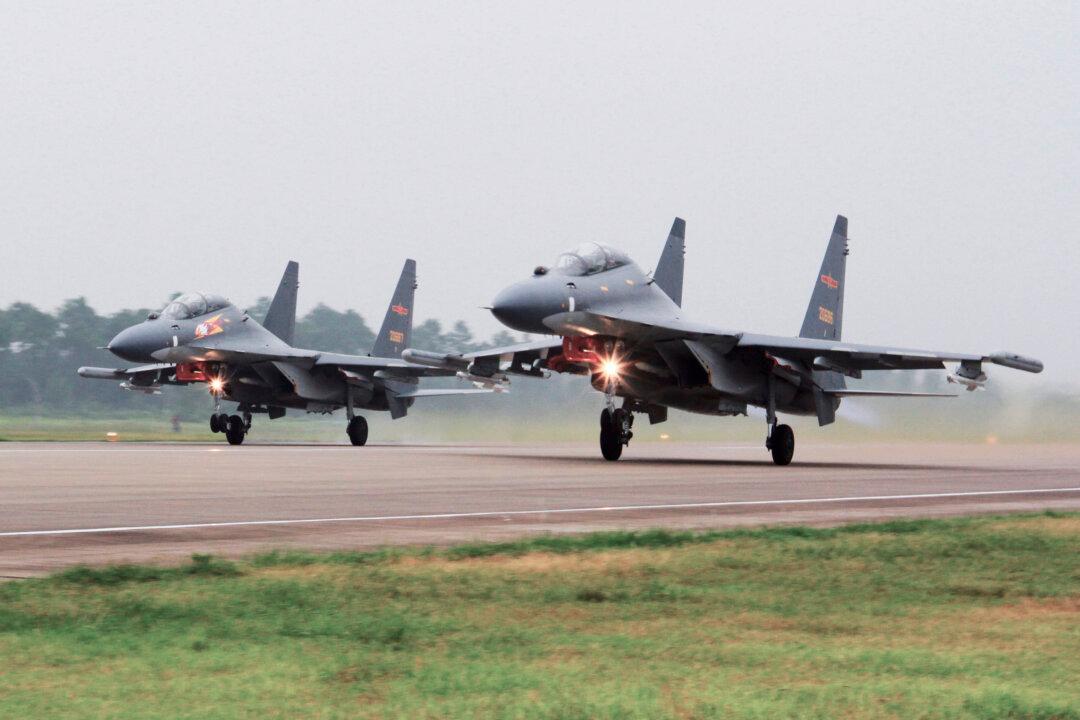The Report
Together with another 9 countries, China and Cuba feature strongly in the section of the report titled “When the Government is the Trafficker: State-Sponsored Trafficking in Persons.”The report section includes 11 governments with a “documented ‘policy or pattern’ of human trafficking, trafficking in government-funded programs, forced labor in government-affiliated medical services or other sectors, sexual slavery in government camps, or the employment or recruitment of child soldiers.”
Burying Human Rights Violations
“It is absurd and shameful that the State Department’s summary report fails to highlight two of the most alarming instances of modern-day slavery," said Rubio in a June 15 statement.“Starting with China’s acts of genocide against the Uyghur population, where individuals are subjected to forced labor and unjust mass detentions, as well as Cuba’s ‘medical brigades,’ which are nothing more than a profit-driven scheme led by the island’s criminal regime.
“Burying these human rights violations in the individual country reports means most people and reporters will assume the U.S. government does not take heinous crimes in China and Cuba seriously,” Rubio added.
Repression of Uyghurs in China’s Xinjiang Continues Unabated
The harsh repression of ethnic Uyghurs in China’s far-western Xinjiang region continues even after the United States and other countries have recognized the atrocities as genocide, according to Salih Hudayar, the prime minister of the East Turkistan government-in-exile. He is also an advocate for the human rights of the Uyghur people and for the independence of East Turkistan, also known as the Xinjiang Uyghur Autonomous Region.According to estimates from researchers, the Chinese regime has detained more than one million Uyghurs and other ethnic minorities in internment camps in Xinjiang, where they are subjected to torture, rape, forced labor, and political indoctrination by the Chinese Communist Party (CCP).
In 2020, the Trump administration declared Beijing’s repression of Uyghurs a genocide. The declaration was later echoed by nearly a dozen parliaments, including in the E.U., the United Kingdom, and Canada.
“But sadly, it hasn’t been enough to stop the genocide,” Hudayar noted.
“The Chinese government continues to carry out genocide, even in 2023. It continues to deny the fact that it’s carrying out genocide,” Hudayar told “China in Focus” on NTD, the sister media outlet of The Epoch Times, on Jan 18.
Hudayar said that despite the CCP’s lifting of its strict “zero-COVID” policies nationwide, the situation in Xinjiang remains unchanged this year as the regime continues to build internment camps across the deserts of East Turkistan.
However, the advocate believes the legislation is not strong enough to end the practice of forced labor.
Another Group of Victims
According to China commentator Heng He, in the early years of the CCP’s persecution campaign against Falun Gong, many persecuted adherents exposed the CCP’s use of prisoners for large-scale manufacturing and the export of prison-made products.Falun Gong, also known as Falun Dafa, is a spiritual discipline involving meditative exercises and moral teachings based on three core principles: truthfulness, compassion, and forbearance. The practice gained popularity in China during the 1990s, with estimates putting the number of adherents at 70 to 100 million at the height of its popularity.
The communist regime, fearing the number of practitioners posed a threat to its authoritarian control, initiated a sweeping campaign aimed at eradicating the practice starting on July 20, 1999—a program that continues today.
Since then, millions of Falun Gong practitioners have been detained in prisons, labor camps, and other facilities, with hundreds of thousands tortured while incarcerated, according to the Falun Dafa Information Center.
Cuban Abuse of its Medical Brigades
Under Cuba’s overseas medical missions program, the country has sent tens of thousands of its medical professionals abroad to work in countries facing natural disasters, pandemics, or health care emergencies.“What these doctors are doing is heroic. But how the Cuban [regime] treats them is disgraceful, taking credit for their good deeds while pocketing most of their earnings, denying them basic freedoms of speech and movement, and keeping them and their families back in Cuba in a situation of perpetual duress,” Vivanco said.
“Cuba’s deployment of medical missions overseas, while cloaked in altruism, is actually a scheme to generate income that exploits Cuban medical workers,” the State Department said in a statement to The Washington Post. “Cuba’s medical missions program is not inherently humanitarian; the regime earns income by retaining up to 90 percent of the doctors’ salaries.”
In July 2019, then Secretary of State Mike Pompeo announced sanctions on Cuban officials involved with its medical missions.
The Epoch Times reached out to the State Department for comment but did not receive a reply before this article was published.




